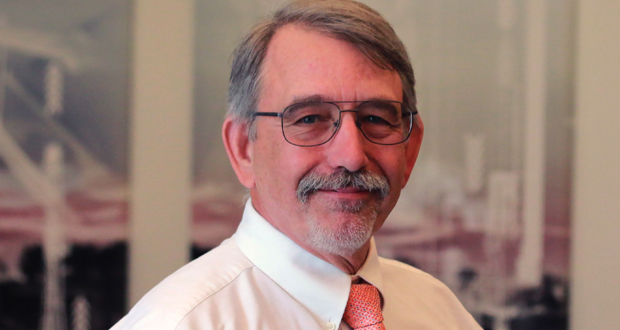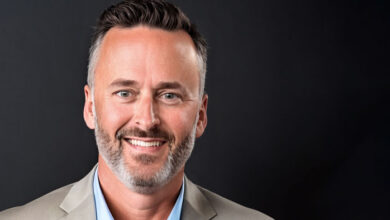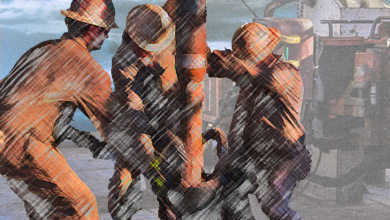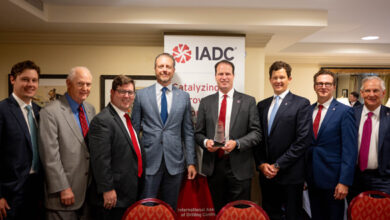Perspectives: Richard Grayson, Nabors – Being flexible is critical to a long career in an industry of constant change

By Stephen Whitfield, Associate Editor
The oil and gas industry draws people for many reasons. Maybe they have family in the industry or a love of geology, or perhaps they were awed by the sight of a drilling rig at a young age. Some people, however, are drawn to it for more practical reasons. For Richard Grayson, Senior QHSE Manager at Nabors Industries, it was a way to make good money.
Though he grew up surrounded by rigs in Noble, Okla., Mr Grayson never thought much about a career in oil and gas. He was good at the natural sciences, and upon entering the University of Oklahoma in 1973, he decided to study zoology and animal biology.
Drilling didn’t enter his life until after his freshman year, when he joined a friend on a summer job working as a floor hand on a land rig in Oklahoma.
“I needed money to go to school. It was more money than I could make anywhere else. I worked there all summer and just kept doing it,” he said.
That first rig hand job became a means for Mr Grayson to help pay for college. He would work summers, weekends, holiday breaks, or whenever another floor hand would want a day off. Soon, Mr Grayson realized that the oilfield offered a better future than zoology, so he kept working on rigs, even after graduating from the University of Oklahoma in 1977.
He worked for multiple drilling companies in Oklahoma over the next several years, switching jobs depending on the needs of the company and the rig: Sometimes he was a toolpusher, sometimes a derrickman. By the early 1980s, he’d become a rig manager.
The constant ups and downs of life in the industry ultimately began to wear on him though. “I kept getting laid off because a rig would finish a contract. You never knew what would happen.”
After the industry went into a downturn in 1982, he switched gears and took a teaching job at the University of Oklahoma’s well control school. In 1985, that position led to a job in Houston as a well control instructor at Reading and Bates (R&B), an offshore drilling contractor. In 1990, Mr Grayson was promoted to HSE and Training Supervisor, and in 1995 he was named Training Manager for International and Deepwater Operations. Throughout the years, he taught well control and conducted safety audits worldwide.
Mr Grayson said his time at R&B taught him a lot about leadership. “I learned how to be a supervisor in a multinational corporation,” he said. “There are certain things you must do to be a good leader. Listening to your direct reports, being willing to train because most people want to move up in the world, understanding all aspects of your people’s jobs, and controlling your emotions are a few.”
In 2000, he joined Nabors Industries as QHSE Manager, attracted by the change in scenery and the chance to work onshore again, which he had not done for nearly two decades. As part of this job, Mr Grayson developed new strategies around health, safety, environment and training. He also oversaw various aspects of Nabors’ safety training protocols when the nature of safety training was rapidly changing.
In 2016, Mr Grayson added Global Well Control Focal Point to his title. In addition to overseeing various safety protocols, he conducts crew assessments and well control equipment readiness inspections. He also manages the company’s well control documents, several of which he authored, and leads the company’s internal well control committee.
Volunteering with IADC
Mr Grayson is no stranger to IADC. He first got involved in the 1980s, during his training days at R&B. He helped restart the HSET Committee, then called the Training Committee, after it had been suspended for lack of interest. His first appearance in this magazine came in the June/July 1990 issue, when he co-authored an article on a well control worksheet that helps control slanted-hole kicks.
In the decades since, Mr Grayson has chaired the IADC Training and Well Control committees. He is a member of the HSET Committee and sits on the advisory panel for the WellSharp accreditation program. He also sits on a three-person panel that reviews well control instructor applications for IADC.
Mr Grayson said his work with IADC focuses on helping drillers work in changing times. For instance, the WellSharp Live distance learning option was developed during the COVID-19 pandemic, but its adoption has continued as drillers have adopted more remote work into their operations.
Change is the one constant he has seen in the industry, he said, and learning to adapt is critical to thriving in the future. “Some people would say that oil and gas is a sunset industry and that we’re on the way out, but I don’t believe that. I do believe – and it’s been true in my career – that you need to be willing to change,” Mr Grayson said. “There will be a lot of change in our industry, and it will be a very interesting time. You just need to embrace it.” DC




